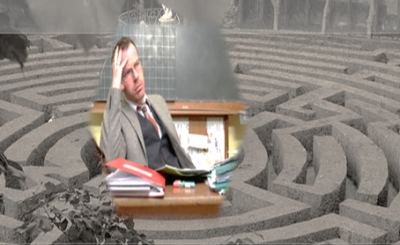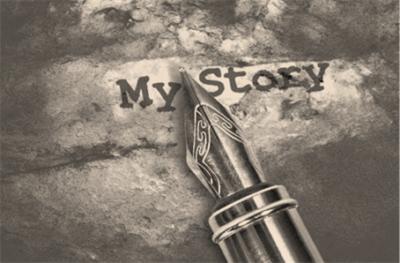ABSTRACTS 1st SESSION
FRIDAY MORNING, FEBRUARY 23rd 2024 8.30 am -12.30 pm
ONCE UPON A TIME THE TEACHER…
.

The two main reasons for the school’s current state of crisis
The school is an institution perpetually in a state of crisis for multiple reasons. On the one hand, because of its being exposed at the forefront of social changes and problems affecting the community, to which it is deeply intertwined. On the other, because of the constant mediation that schools must exercise precisely between innovation and tradition.
The school must also face the dilemma concerning its dual function of social promotion and selection.
Five processes that conflict with the traditional role of educational institutions
 These structural tensions, however, are compounded in current times by the reflections of deeper changes that society is facing and that conflict precisely with the positioning of educational institutions. At least five processes can be identified that are ongoing and closely related to the role of schools in society:
These structural tensions, however, are compounded in current times by the reflections of deeper changes that society is facing and that conflict precisely with the positioning of educational institutions. At least five processes can be identified that are ongoing and closely related to the role of schools in society:
- the pervasiveness of the logic of the market and performativity, which has come to affect educational institutions themselves;
- the lengthening of educational pathways and the consequent inflation of educational credentials;
- the massive digitization in the production and fruition of knowledge;
- the multiple sources of value and identity pluralism in post-ideological and post-modern society;
- the parallel collapse of trust in institutions, including precisely those deputed to the production of knowledge.
There are thus many reasons why, now more than ever, the traditionally understood meaning of school is in question.
Teachers at the center of the maze
 Teachers find themselves at the center of this labyrinth: indeed, it is they who have to find precarious balances of compromise between the many instances at stake on a daily basis, just as their professional role models are being profoundly challenged.
Teachers find themselves at the center of this labyrinth: indeed, it is they who have to find precarious balances of compromise between the many instances at stake on a daily basis, just as their professional role models are being profoundly challenged.
It is argued that, in order to reform schools, it is necessary to focus attention precisely on teachers, the only powerful lever of change. It is argued that there is a need to imagine pathways and tools that enhance solutions to the many indicated challenges that teachers encounter on a day-to-day basis, promoting bottom-up pathways of meaning-making that already exist.
.
.

The OECD’s Learning Compass is a framework which provides a broad vision of the types of competencies students need to thrive. When we commit to the vision of learning it describes, we cannot avoid the challenge of clarifying what teachers are being asked to do and who they are being asked to be. Add to this the rapidly changing social and cultural environment in which schools function and the need to re-define teachers’ work is evident.
 The OECD’s Global Forum on the Future of Education and Skills 2030 has been discussing what all of this means for teachers’ professional identity and I will outline the principal elements which are emerging from our discussions at the Global Forum.
The OECD’s Global Forum on the Future of Education and Skills 2030 has been discussing what all of this means for teachers’ professional identity and I will outline the principal elements which are emerging from our discussions at the Global Forum.
There is much that is already captured in the Learning Compass that is relevant to a consideration of the role of teachers as both as learners themselves and as enablers of student learning. While this presentation will acknowledge a set of core competencies required by teachers, it will focus on how teachers can be supported to acquire the kinds of transformational competencies needed to prepare young people to flourish in an unpredictable future. Taking an eco-systemic approach, it will consider the range of influences on the professional identities of teachers as well as the multi-dimensionality of the teaching task.
.
.

 Everyone remembers that one teacher who has had a tremendous impact on them. It could have been some wise words shared, encouragement given or it could have simply been an act of incredible kindness that was experienced in a moment in history. Regardless, that moment has caused an imprint and has left a legacy on the lives of many where learning in its purest form has taken place.
Everyone remembers that one teacher who has had a tremendous impact on them. It could have been some wise words shared, encouragement given or it could have simply been an act of incredible kindness that was experienced in a moment in history. Regardless, that moment has caused an imprint and has left a legacy on the lives of many where learning in its purest form has taken place.
Teachers have deep and plentiful insights into how young people feel and what makes them motivated. Their knowledge, gained from talking, teaching and listening to their pupils, observing and guiding them, can be a precious tool to learn about our young people in our classrooms but also it can help parents to identify their children’s potential and help them to shine.
Yet it works both ways. The best teachers are also shaped by their students and will learn a great deal about their own practice, about life and the experiences of young people whom they teach. These are the most important lessons in life.
Within this presentation, Andria will explain from gathering the experiences from educators all over the world, the stories of the young people who had made a difference to them professionally and personally. Alongside this, Andria will share with us her journey of how working within her school community has led her to be the recipient of The Global Teacher Prize and the lessons that have been learnt from teaching for 20 years in inner city diverse classrooms.
.

The presentation, after a brief examination of the main terms of a discourse on storytelling (in particular the differences between story, tale and narrative), aims to highlight how storytelling is an ordinary activity, known to all and practiced by all; however,  it differs depending on the means used and, above all, on the situations, contexts and relationships within which it is situated.
it differs depending on the means used and, above all, on the situations, contexts and relationships within which it is situated.
Particularly relevant in the educational professions have partially autobiographical narratives that help to value, take note of, and account to others for one’s experience.
In the final part, the talk will be enriched with some observations on meta-narratives: these are also common practice, but they are very instructive especially in the context of educational processes..
.
.


A brief tasting of the power of autobiographical writing. Through fragments of memory, between memories and feelings, interpretations and inventions, we will entrust thoughts to the written word.
You will write about yourself, but mostly for yourself, to listen to yourself and learn to listen and to live better in the present moment.
.
.



